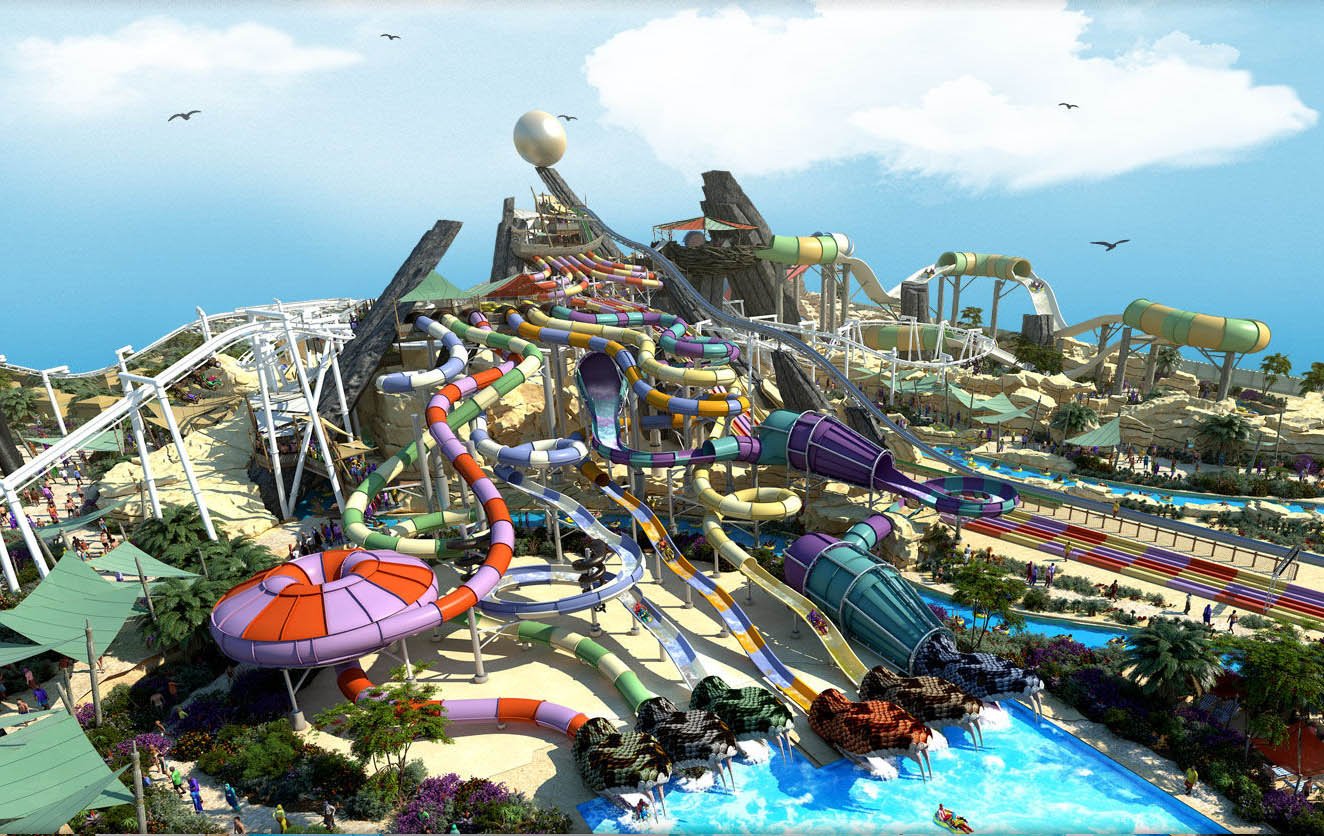Now Reading: How Theme Parks Are Boosting Residential Demand Around Them
-
01
How Theme Parks Are Boosting Residential Demand Around Them
How Theme Parks Are Boosting Residential Demand Around Them

The relationship between theme parks and real estate demand is stronger than most people realize. While theme parks are designed for entertainment, they also act as powerful economic and lifestyle catalysts, driving residential growth and property values in the areas surrounding them.
From Disney’s impact on Orlando’s housing market to Warner Bros. World in Abu Dhabi or Motiongate Dubai in the UAE, global examples show that when a major theme park is built, the surrounding communities transform into vibrant residential hubs. Families, investors, and businesses alike are drawn to the area, creating a cycle of growth that boosts long-term real estate demand.
In this article, we’ll explore why theme parks play such a key role in housing demand, how they benefit local communities, and what the future holds for these entertainment-driven neighborhoods.
Why Theme Parks Increase Residential Demand
Theme parks are more than just tourist attractions – they create entire ecosystems of growth. Here are the main reasons they boost housing demand:
1. Employment Opportunities
Theme parks generate thousands of direct and indirect jobs, from ride operators and hospitality staff to suppliers and entertainment professionals. This steady employment attracts workers who often prefer to live nearby, increasing demand for both rental and owned properties.
2. Family-Friendly Appeal
Living near a theme park is especially attractive for families. Parents want to be close to world-class leisure and recreational facilities for their children. This drives demand for suburban-style communities, villas, and family-sized apartments around theme parks.
3. Infrastructure Development
Theme park projects usually come with massive infrastructure investments. New roads, highways, metro lines, and shopping centers are developed to support the influx of visitors, which also makes the surrounding area more livable and attractive for residents.
4. Tourism Spillover
Theme parks attract millions of tourists annually, many of whom invest in vacation homes, serviced apartments, or rental properties nearby. This creates strong demand for both short-term rentals (Airbnb-style) and long-term housing.
5. Lifestyle and Entertainment
Residents benefit from proximity to not only the theme park but also the retail, dining, and entertainment facilities that often grow around it. Living in such vibrant communities appeals to young professionals and families alike.
Global Case Studies
Orlando, Florida – Disney and Universal Studios
Orlando is the best example of how theme parks fuel real estate demand. With Disney World and Universal Studios attracting millions of tourists yearly, the city has become one of the most lucrative housing markets in the U.S. Vacation homes, resorts, and suburban communities have flourished around these parks, offering consistent rental yields for investors.
Abu Dhabi – Yas Island and Warner Bros. World
In the UAE, Yas Island has become a prime residential and lifestyle hub thanks to attractions like Ferrari World, Warner Bros. World, and Yas Waterworld. The demand for villas, apartments, and waterfront homes surged as Yas Island transformed into a leisure and tourism hotspot.
Dubai – Motiongate, Legoland, and Bollywood Parks
Dubai Parks and Resorts created a new lifestyle destination in Jebel Ali. While still maturing, the development of theme parks has spurred demand for communities nearby, as families and professionals see value in being close to such entertainment hubs.
Paris – Disneyland Paris
Disneyland Paris not only brings millions of tourists but also transformed Marne-la-Vallée into a thriving residential suburb, boosting property prices and creating an entire ecosystem of housing, hotels, and services.
Benefits for Homebuyers and Investors
Living near a theme park offers unique advantages:
- Higher Property Value Growth: Properties around theme parks often appreciate faster due to high demand.
- Rental Opportunities: Investors can benefit from both long-term family tenants and short-term tourist rentals.
- Lifestyle Appeal: Residents enjoy access to entertainment, retail, and leisure facilities.
- Community Development: These areas are usually well-planned, with schools, healthcare, and infrastructure built to support growing populations.
Challenges and Considerations

While the benefits are significant, potential buyers and investors should also consider:
- Traffic and Congestion: High visitor numbers can sometimes lead to traffic congestion.
- Noise Levels: Living close to theme parks means more noise, especially during peak seasons.
- Market Cycles: Theme park-driven demand can fluctuate with tourism trends.
Future of Theme Parks and Real Estate
As cities worldwide invest in entertainment-driven economies, theme parks will continue to shape housing demand. In the UAE, developments like Dubai Parks and Yas Island show how theme parks are integral to master-planned communities. Globally, countries are looking at integrated leisure and residential models, blending entertainment with modern living.
The future lies in mixed-use communities, where theme parks are not isolated attractions but part of a larger ecosystem that includes housing, schools, retail, and business districts. This ensures long-term sustainability and consistent real estate demand.
Conclusion
The connection between theme parks and real estate demand is clear: wherever a world-class theme park is built, housing demand follows. Families want to live nearby, employees need residences, and investors see opportunities for steady returns.
Whether it’s Orlando, Yas Island, or Disneyland Paris, the formula is the same – theme parks transform entire neighborhoods into thriving residential hubs. As global cities continue to embrace leisure-driven economies, we can expect theme parks to play an even bigger role in shaping the future of real estate.
Follow us on: Instagram
Read More:Dubai Real Estate Transactions Exceed AED 431 Billion in H1 20






















